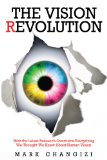New from MIT Press: Psychology: Pythagoras to Present (Bradford Books) by John C. Malone, Professor of Psychology at the University of Tennessee, Knoxville.

Product description from the publisher:
Certain ideas have preoccupied thinkers since ancient times: the nature of mind, the sources of knowledge and belief, the nature of the self, ethics and the best way to lead our lives, the question of free will. In this book, John Malone examines these ideas in the writings of thinkers from antiquity to the present day and argues for their importance not just as precursors of modern views but as ideas that are frequently better than current ones. We can get good advice, he writes, from the writings of the best thinkers of the past. Pythagoras, Thales, Plato, Protagoras, Aristotle, Diogenes, and Epictetus all offer tried and tested ideas on how we should lead our lives and on the treatment of psychopathology—as do Berkeley, Hume, John Stuart Mill, Johann Friedrich Herbart, Wilhelm Wundt, William James, Sigmund Freud, and B. F. Skinner.
Malone begins with the naturalistic and mystical strains of early Greek thought, moves on to Platonism and the world of Forms (and considers parallels between the thought of Plato and Freud), and discusses “Ancient Self-Help Therapies” (including Epicureanism). He investigates the psychological insights of Enlightenment thinkers including Francis Bacon and Galileo, Locke’s and Kant’s theories of experience, and Darwin’s evolutionary thinking. He charts the rise of modern psychology and the beginning of “biological psychology.” He examines the work of Wundt, Titchener, Freud, Peirce, and James, among others, and describes the ideas of behaviorism, Gestalt psychology, and cognitive science.
Malone’s history offers both breadth and depth, an engaging style and rigorous scholarship, demonstrating vividly the relevance of the great historical psychological thinkers.
A preview is available at the publisher’s website.







